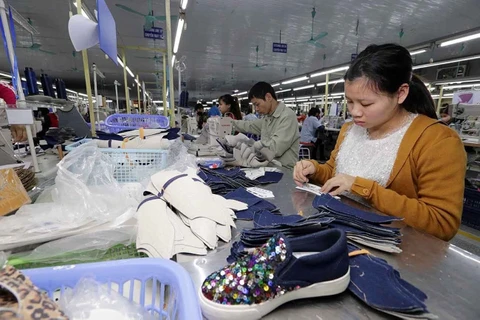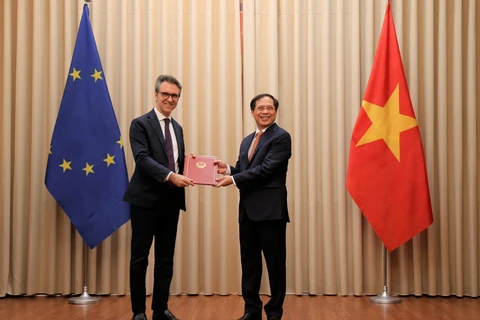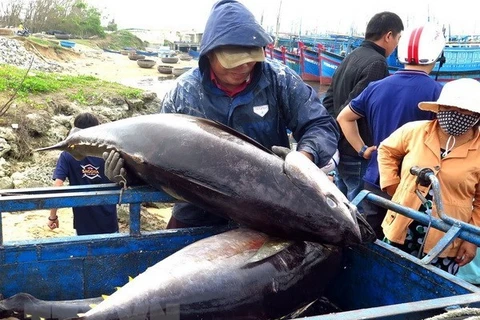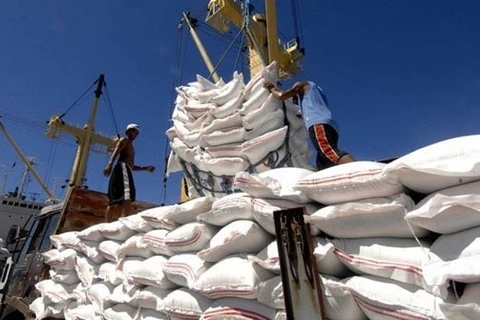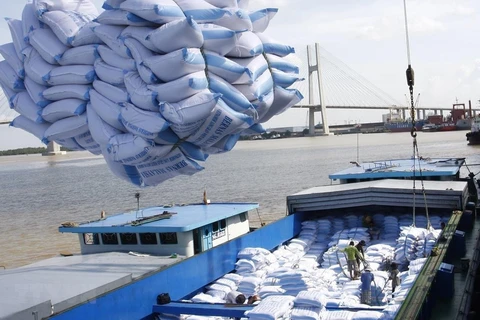 Speakers at a seminar held on July 24 in HCM City discuss ways to take full advantage of the EU-Vietnam Free Trade Agreement (Photo: VNA)
Speakers at a seminar held on July 24 in HCM City discuss ways to take full advantage of the EU-Vietnam Free Trade Agreement (Photo: VNA) HCM City (VNS/VNA) — The agriculture sector needs to address challenges related to branding, geographical indications, traceability, and intellectual property to take full advantage of the free trade agreement Vietnam has signed with the EU, speakers said at a meeting on July 24.
Le Duy Minh, chairman of Vietnam Farms and Agricultural Enterprises Association (VFAEA), said the EU-Vietnam Free Trade Agreement (EVFTA) has created tremendous opportunities for Vietnamese exports, including agro-forestry-fishery products.
Exports of agro-forestry-fishery products to the EU stands at nearly 5 billion USD per year, according to Minh.
Dr Dinh Viet Tu, of the Ministry of Agricutlure and Rural Development’s Agro-product Processing and Market Development Department, said it was important to protect intellectual property at home and abroad for key and specific agricultural products, and promote branding development, geographical indications, and traceability.
Le Thanh Tung, deputy head of the ministry’s Plant Cultivation Department, noted that it was also important for the agricultural sector to raise its chain value to take full advantage of the trade deal.
Exporters must improve standards and develop new value-added products that can compete internationally, he said.
Vo Tan Thanh, vice chairman of the Vietnam Chamber of Commerce and Industry (VCCI), said that to take full advantage of the agreement, farmers should shift from traditional to sustainable cultivation.
Enterprises should intensify deep processing as well as follow regulations on technical barriers and food safety and hygiene committed in free trade agreements in general and the EVFTA in particular.
The Government should also intensify food safety management, while calling for more investors in agriculture, especially after harvesting, he said.
For the past decade, Vietnamese exports of agricultural, forestry and aquatic products grew more than 9 percent on average. There are 10 agricultural products with export turnover of 1 billion USD or more, including fruit, cashew, coffee, rice, and shrimp.
Experts said Vietnam’s agricultural sector will be one of the biggest winners from the EVFTA, as a reduction in tariffs will increase demand and boost exports to Europe’s large, high-spending consumer market.
According to EU statistics, trade in agricultural products represents 11.75 percent of the total two-way trade between Vietnam and the EU.
The EVFTA abolishes 99 percent of import tariffs over the next seven to 10 years./.
